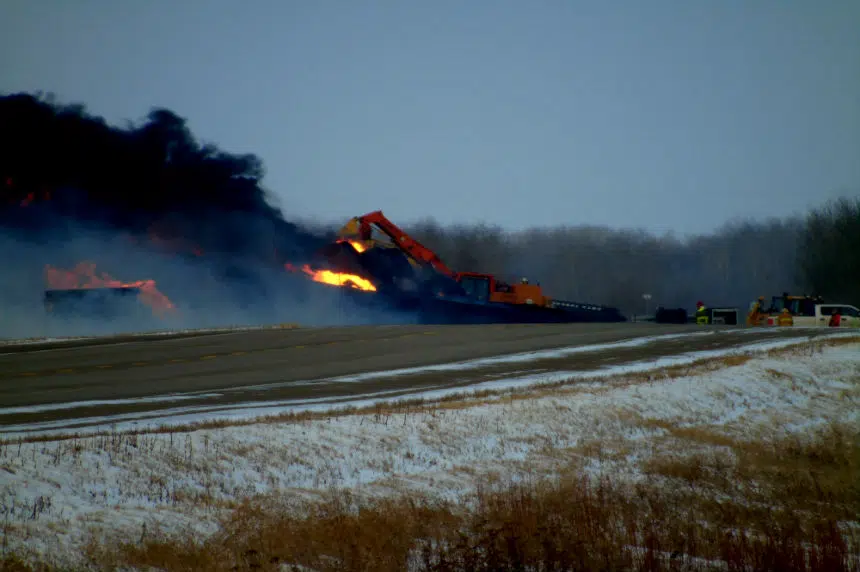The Kawacatoose First Nation is looking for answers after the Canadian Pacific (CP) train derailment near Guernsey on Dec. 9.
The community’s chief, council and band members are concerned following the leak of 1.5 million litres of crude oil onto the land.
Although Kawacatoose lands weren’t directly affected by the spill, it’s the closest First Nation to the spill.
Chief Tom Dustyhorn joined David Kirton on Saskatchewan Afternoon on Tuesday to discuss the issue.
“We hunt out that way, we pick our traditional medicines (from the area),” Dustyhorn said.
“We all know that it’s going to impact the plants and the wildlife around that particular area, but the underground water systems … we haven’t once got any contact, or information from the CP company, or the federal government.”
Kawacatoose is located on Treaty 4 territory, and the derailment was located on Treaty 6 territory. Regardless, Dustyhorn said the First Nation just wants to know what’s being done to ensure the safety of its band members.
“If (CP) ended up talking to the local RM, or the town of Lanigan, or whoever, the local farmers, that’s great,” he said. “We just want to be included.”
The First Nation’s main issue is the safety of the community’s water. Dustyhorn admitted the First Nation had issues with underground water systems regarding water breaks in the past, and use of its water.
“If there’s nothing that’s going to be impacted in the water system, that’s just great …,” he said. “We get the questions all the time. I’m sure the environmental people won’t be talking to our First Nation band members. It’s our duty to communicate back to our 3,200 people.”
The Federation of Sovereign Indigenous Nations (FSIN) is also supporting Kawacatoose.
FSIN Chief Bobby Cameron said he wants to see all communities properly and thoroughly consulted on the environmental impact and cleanup efforts, like the CP rail spill.
“A number of our people continue to live off these lands and practise their Treaty Rights in that area,” Cameron said Tuesday in a statement.
“Harvesters use the medicines that grow from the earth that has been contaminated and hunters feed their entire communities with the wildlife that are feeding in that affected area. Our people know these lands and have survived for many generations living off the earth. Their knowledge should be utilized in all stages of this clean-up effort.”
On Thursday, the Saskatchewan ministry of environment said CP would be on the hook for the cost and cleanup of the Dec. 9 derailment and oil spill.
Kawacatoose is approximately 100 kilometres southeast of the site of the derailment.







